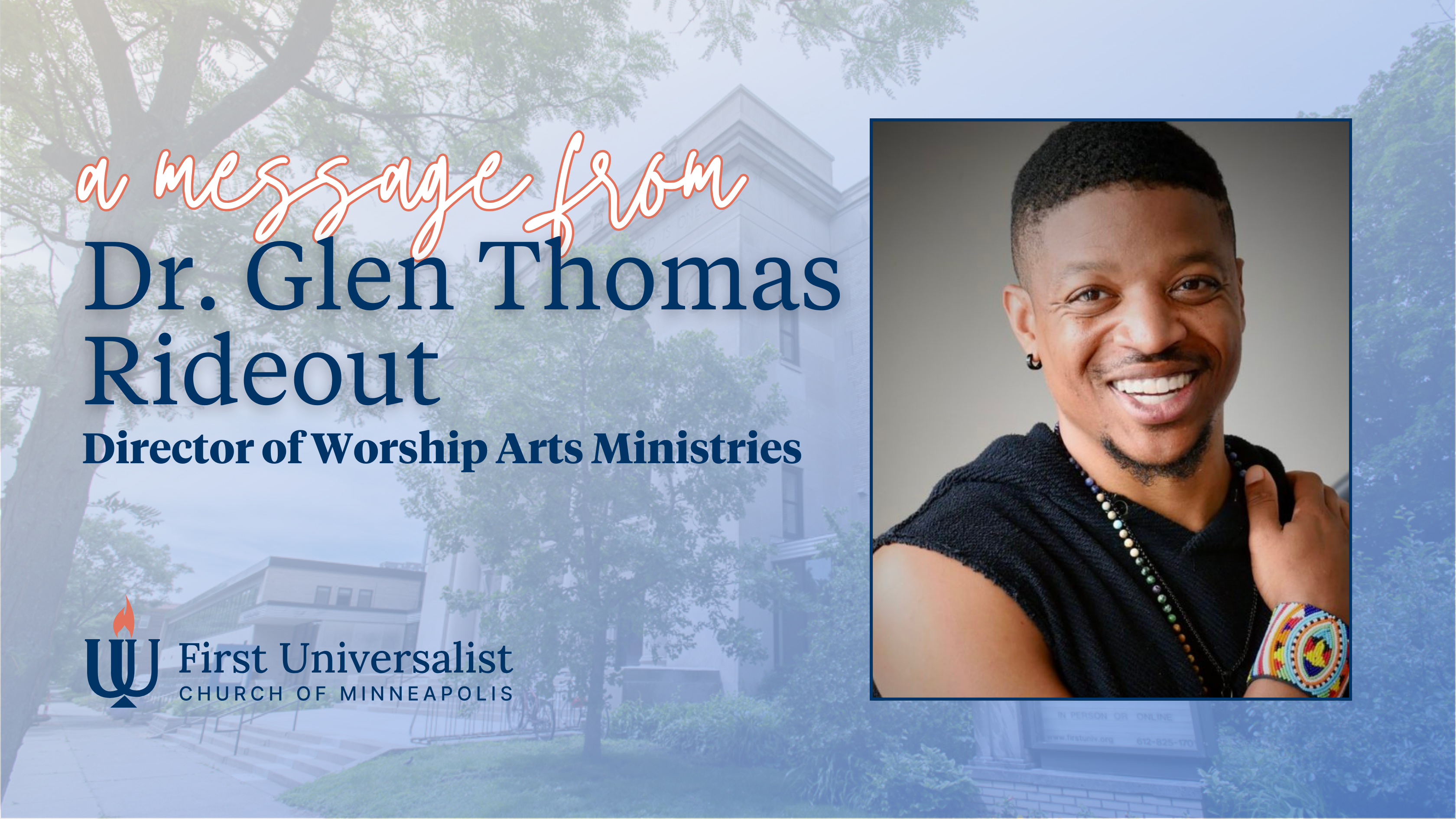An Amazing Race, The Impossible House
News –

I took up running. Seven miles last week, five yesterday—every stride a small astonishment when I remember the half-pack habit that once framed my afternoons. The change crept in piece by piece: one block, one loop, one morning where “I’ll try” felt truer than “I can’t.” This is how bodies learn to believe—through practice, rhythm, and honest limits. The process itself stretches like a marathon: slow, repetitive, strangely joyful. As I train, I keep returning to a truth for our spiritual life together: endurance grows by design. Values set a pace. Small repetitions compound into freedom. The fractal shows up on the street and in the sanctuary: build the pattern well in one place, and the pattern scales. Build it in our community, and the pattern teaches the city. This week offers an almost too-perfect mirror: the Twin Cities Marathon will close long slices of Minneapolis and Saint Paul; plan extra time to arrive. And yes—the article you asked for does indeed begin here: “the spiritual life is a marathon and not a sprint.”
What We Heard: State of the Spirit
We gathered to listen for the state of our spirit. The circle carried “honest sharing without drift or heat,” a relief in a loud season. People named climate grief and the question of agency—do small acts matter—alongside pressure on public life and attacks on institutions. Several voices called us to center anti-racism. Prayer arrived in plain language: sometimes the whole prayer was “help, help, help.” The room remembered hand-holding in worship and the feeling of holding it together, with music and brief ritual recalled as daily medicine. Elders voiced the ache for forms that once signaled safety; across ages we heard a request to stabilize the room as we grow. And we kept collecting those small truths to carry for a week—toddlers, dogs, little tomatoes—joy sitting beside fatigue.
One image refuses to leave me: a wave of connection starting on the left side of the room, curling like a windsock toward Aimee at the piano—hands holding hands while the music grounds the room. A living metaphor for how grace travels. We will keep hosting these circles—open listening that invites us to be changed by what we hear and to let that hearing shape our worship and our common life.
Closing the Loop: One Immediate Change
Each time we report back, we will name a real adjustment drawn from what we heard. This week’s change touches that hand-holding moment: we will model consent explicitly in the room. The worship leader will invite participation with clear options, and every option will honor dignity. Why? Because people loved the return of hand-holding, and because a culture of consent requires opt-in clarity, joyful yeses, and empowered nos.
This is small, and it changes the atmosphere. It tells the truth about bodies, boundaries, and belonging.
Consent Is Spiritual Practice
The team aligned around this: we intend to build a culture of consent. Consent-seeking signals respect; fluency is the goal. Without fluency, people fear that consent means “no touch ever,” or that naming a no will be read as refusal of community. With fluency, an offered boundary blesses the space. Our OWL commitments gave us a starting place; our adult community practices the same values. Think “enthusiastic yes.” Think silence is not consent. Think care and strong boundaries carried together. Consent in worship is not a sidebar to the Gospel we preach. Consent teaches how love moves: ask, listen, honor. In a multiracial, multigenerational, neurodiverse congregation, every interaction is cross-cultural; consent becomes a house rule of hospitality. The practice looks simple at first—clear invitations, clean options, visible containers for choice—and then ripples outward: meetings, choir rehearsals, pastoral moments. The patterns we build here teach us how to live elsewhere.
October: The Impossible House
Welcome to The Impossible House—our October theme. A short blurb frames it this way: Belonging in Grief. What does real belonging ask of us? We face the joy and the grief of making a home that holds every story, and we learn to live with what resists mending. This first Sunday sets the stage: what do we mean by “impossible,” and why would a church commit to building such a house? One answer: the gap between aspiration and reality stretches across our lives. The work is to ground ourselves so fully in our values that the next choice becomes unavoidable.
Another answer lives closer to home. Our sanctuary work taught us about impossible choices: families facing systems where every option wounds something precious. The church cannot erase those binds, yet the church can build conditions where dignity and agency breathe. A community that honors consent, names grief honestly, stabilizes its rituals, and practices clear covenants becomes a house of real belonging—a place where different people with different needs feel truthfully welcomed.
This is why the running matters. The body learns what the spirit must trust: repetition creates capacity; capacity creates courage. Fractal practice—small faithful patterns—scales into culture. Even when the odds feel microscopic, we choose to build here, so we can learn how to build there. The house rises one measured step at a time.
How We Begin
- We keep listening—open circles where people speak and leaders change because of what they hear. I hope to see you at our next session of State of the Spirit.
- We continue to stabilize worship as we change it—clear covenants, steady rhythms, and images to carry the week.
- We practice consent—simple, spoken options every Sunday; dignity honored in the body first.
And yes—leave early on Sunday. The marathon shapes the streets. Let our values shape the room.